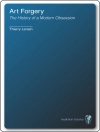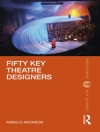Illegalized immigration is a highly iconic topic. The public perception of the current regime for mobility is profoundly shaped by visual and verbal images. As the issue of illegalized immigration is gaining increasing political momentum, the authors feel it is a well-warranted undertaking to analyze the role of images in the creation of illegalization. Their aim is to trace the visual processes that produce these very categories.
The authors aim to map out an iconography of illegalized immigration in relation to political, ethical, and aesthetic discourses. They discuss the need to project new images as well as the dangers of giving persons without legal papers an individual face. Illegalization is produced by law, but naturalized through the everyday use of images. The production of law, on the other hand, is also driven by both mental and materialized images. A critical iconology may help us to see these mechanisms.
Mengenai Pengarang
Christine Bischoff (M.A.) teaches cultural studies at the University of Basel. Her research focus is on visual anthropology, migration, transnationalism and sociocultural mechanisms of inclusion and exclusion.
Francesca Falk (Ph D) teaches at the University of Basel and is a Research Associate at the Institute for Critical Theory at the Zurich University of the Arts. Her areas of special interest are illegalized immigration, postcolonialism, image and history, political theory and border studies.
Sylvia Kafehsy (M.A.) is an art historian and a curator of contemporary art. Her fields of specialization include the visual culture of illegalization, international urban development, pornography/prostitution and censorship.












